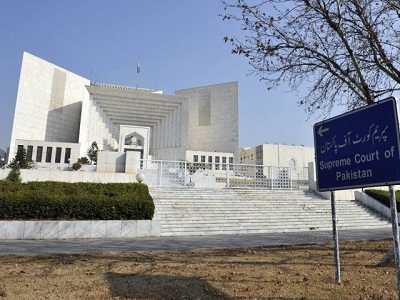Don’t appoint dual nationals to top post, SC orders govt

The apex court also directed the federal and provincial governments to set deadlines for dual national officers to either give up their job or the second nationality.
The bench further said that failure to relinquish their other nationalities within the given time frame could result in legal action.
The top court announced its verdict on a suo moto case pertaining to dual nationalities of government officers.
A three-judge bench headed by Chief Justice of Pakistan Mian Saqib Nisar heard the suo motu case pertaining to dual nationalities of government officers.
On September 24, the SC had reserved its verdict on the case and had issued notices to the attorney general and the four provincial advocate generals in this regard.
Earlier, the chief justice had sought a list of dual nationals appointed on top government posts across the country.
During the hearing, the Federal Investigation Agency (FIA) submitted a list of around 1,000 dual nationals holding government offices. “719 officers had declared their dual national status while the others had hidden it,” the FIA informed the court.
The bench then announced the verdict on the case and directed the government to draft laws in this regard after approval from the Cabinet. The court further ordered that dual nationals not be appointed on top government posts.
In its 52-page written verdict, the top said that dual national cannot be employed because they are a threat to the interests of the state.
The SC’s appointed adviser Shahid Hamid had earlier said that dual nationals should not hold government offices. “It will be better if the court lets the parliament and government take a decision in this regard,” he added.
The SC has declared dual nationals working at government institutions as threat to state of Pakistan. The apex court has ordered a ban on dual nationals recruitments in public institutions.





